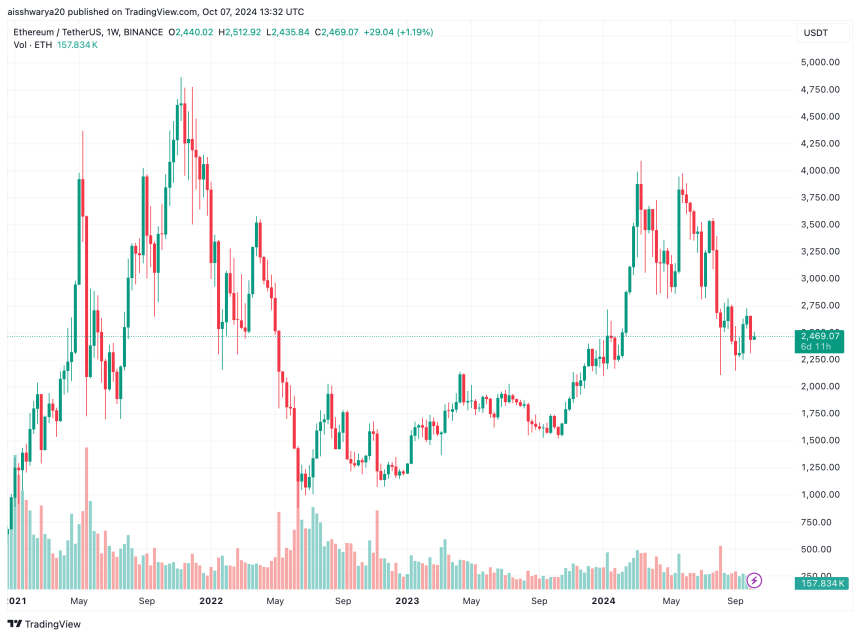ARTICLE AD
Ethereum Improvement Proposal (EIP) 7781 aims to reduce Ethereum network slot times, expand blob capacity, enhance decentralized exchange (DEX) performance, and lower gas fees.
What Is Ethereum Improvement Proposal – 7781?
EIP-7781 has garnered attention from the Ethereum (ETH) community due to its potential impact on the smart contract platform.
Proposed by Ben Adams, co-founder of Illyriad Games, the new EIP promises several benefits, including reducing network slot times from 12 seconds to eight seconds, resulting in a 33% increase in transaction throughput without a corresponding rise in data blob counts.
For the uninitiated, data blob counts in Ethereum refer to the number of chunks of data included in a block for future use by rollups or layer-2 scaling solutions. These blobs help offload data storage and processing from the base Ethereum network, reducing congestion and improving scalability.
EIP-7781 also aims to distribute network bandwidth more evenly, effectively lowering peak bandwidth requirements without sacrificing network efficiency.
In his proposal, Adams explains:
This would be equivalent to increasing blob count from 6 to 8 or gas limit from 30M to 40M; however this approach does not increase peak bandwidth.
Commenting on the proposal, Ethereum Foundation researcher Justin Drake said he supports reducing slot times to eight seconds. Drake added that the proposal would help DEXes like Uniswap v3 become 1.22 times more efficient, saving approximately $100 million in CEX-DEX arbitrage annually, resulting in better user trade execution.
Similarly, Pseudonymous developer Cygaar shared their thoughts on EIP-7781, saying, if approved, the proposal can increase Ethereum’s throughput by as much as 50%. The developer also confirmed that the proposal would help lower Ethereum gas fees.
However, Cygaar cautioned that reducing slot times should not come at the expense of significantly increasing hardware requirements for solo validators.
To clarify this concern, shorter block times could cause the Ethereum blockchain’s data to grow more rapidly, requiring stronger hardware and faster internet to keep up with the quicker updates. This could present challenges for solo stakers and node operators.
EIP-7781 Raises Concern For Solo Stakers
While EIP-7781 promises to address several of the current challenges on the Ethereum network, there are concerns about its impact on solo stakers.
For instance, Cinnehaim Ventures partner Adam Cochran noted that the proposal “seems reasonable in terms of bandwidth on solo stakers” as long as the gas limit per block remains unchanged. Cochran added:
Would want to see some tests on I/O hardware and staker return ping times to make sure it doesn’t cut off some home stakers but, it seems like it should be within range for most.
It should be recalled that recently, Ethereum co-founder Vitalik Buterin advocated lowering the ETH requirement for solo stakers from 32 ETH to 16 or 24 ETH.
Buterin stressed the importance of solo stakers in securing the Ethereum network, suggesting that an increased proportion of solo stakers could provide an extra layer of protection against network attacks. At press time, ETH trades at $2,469, up 1.7% in the last 24 hours.
 ETH trades at $2,469 on the daily chart | Source: ETHUSDT on TradingView.com
ETH trades at $2,469 on the daily chart | Source: ETHUSDT on TradingView.com
Featured image from Unsplash, chart from Tradingview.com

 1 month ago
13
1 month ago
13 

